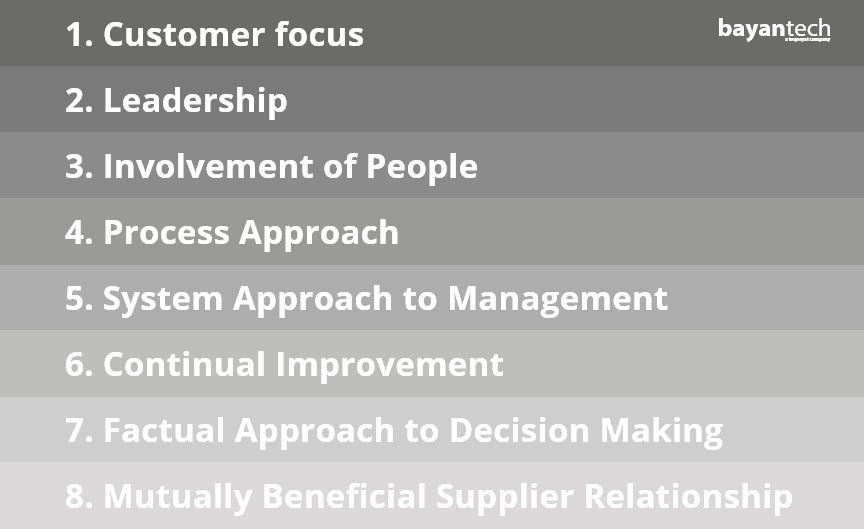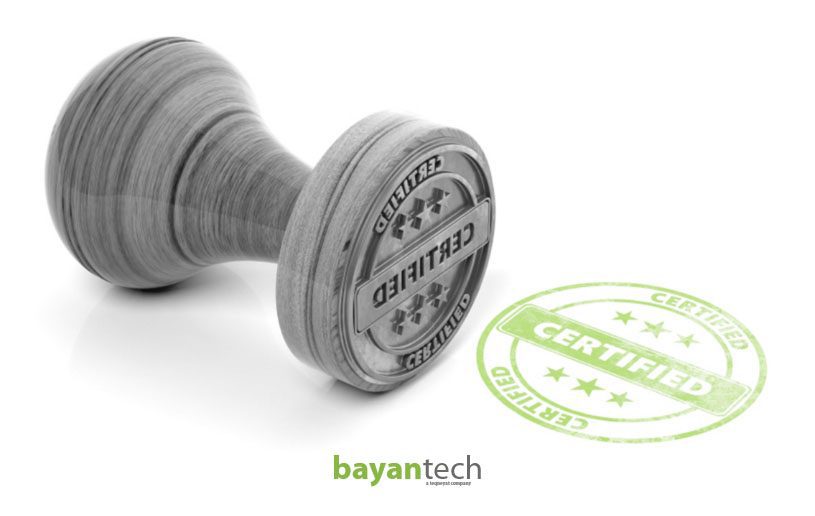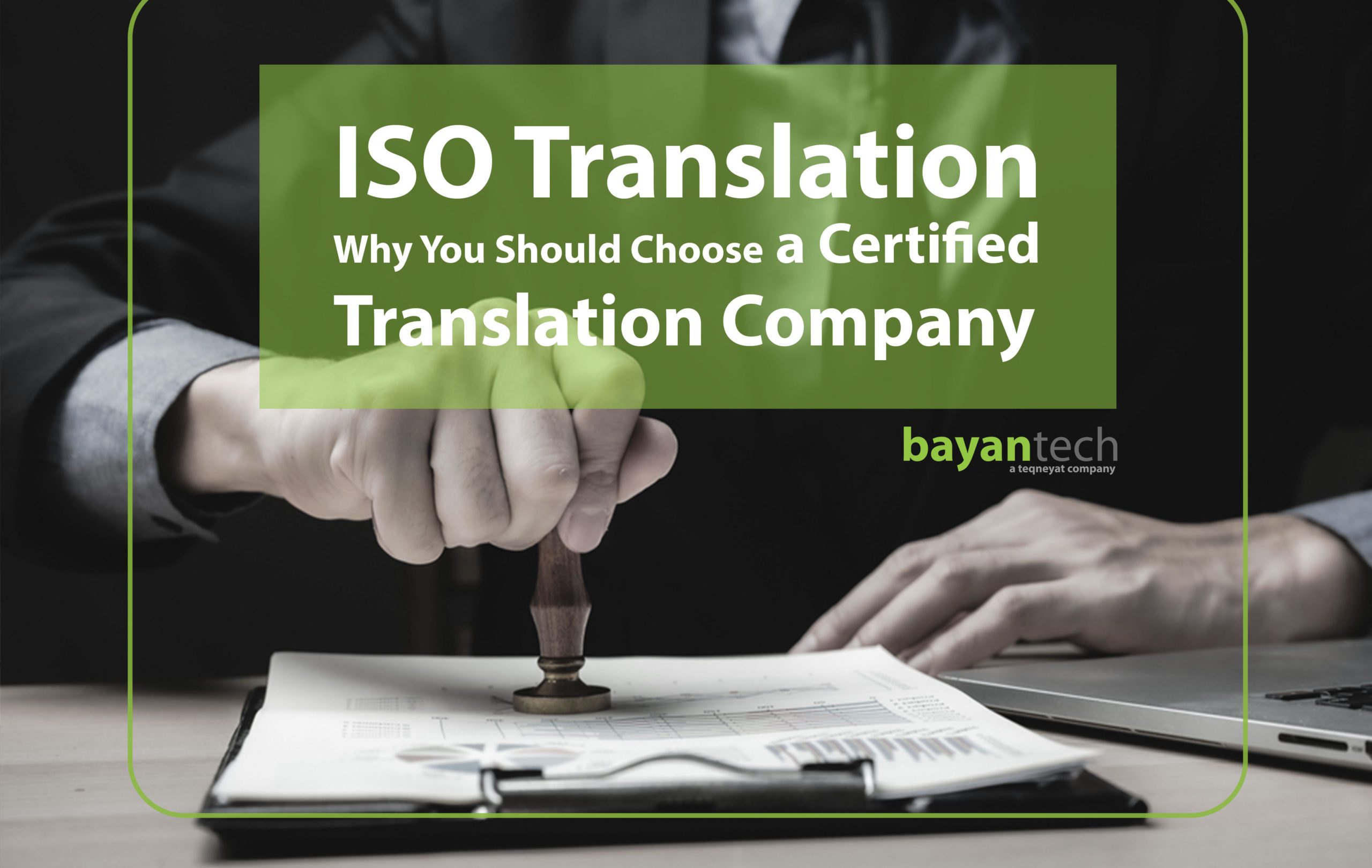You might have seen it multiple times that various organizations, from different fields, show with pride something called ISO Certification. This credential has been around for quite a while and has significant relevance when it comes to knowing who you are working with.
In this article, we will uncover what this abbreviation entails, its role across industries, and more importantly, why you want your translation projects to be in the hands of an ISO translation company.

What is the Meaning of ISO?
First of all, let’s get acquainted with this term. What is ISO? ISO stands for the International Organization for Standardization.

The purpose of this non-governmental organization is to develop and endorse international standards that make products and services consistent and efficient in their performance. The organization provides a process of validation and verification, through which thousands of companies aspire and choose to be certified.
When a company is up to ISO standards, it means that its internal processes unfold in accordance with certain protocols of excellence. To be compliant with ISO standards, a company’s processes and resources must be in continual improvement, thus they can keep adapting to the most recent market’s needs and demands, and not be left behind.
Therefore, every product or service by these companies is expected to be of superior quality. So, in other words, ISO certifications are a reliable (and up-to-date) quality assurance stamp.
In addition, it’s worth mentioning that there are multiple certifications of this kind, one for each discipline and/or field. Today, we would like to go into detail about the ones we consider to be the most fundamental for our field, and that we have proudly earned and sustained through the years: Translation Services (ISO 17100:2015), and Quality Management Systems (ISO 9001: 2015).
ISO Translation Cheat Sheet: Why You Should Choose a Certified Translation Company
Looking for a quick recap on how working with an ISO certified translation partner provides a maximum quality guarantee? Get this FREE cheat sheet.
Translation Qualifications: ISO 17100 2015
As you know, the quality of a language translation process can have a great impact on the global prospects of a company. If it is well achieved, the brand is likely to be welcomed with open arms by international audiences. However, if a minor – but relevant- error in the translation occurs, and the originally intended message gets distorted, the consequences could be fatal. Hence, precision is key.
An ISO-certified translation company can guarantee that your translation project is carried out according to the highest international standards.
To certify translation service providers and their degree of expertise, there is a qualification known as ISO 17100: 2015. This standard, according to ISO.org, is about.

To put it in simpler terms, this definition has to do with requirements and specifications. When it comes to the requirements, they contemplate legal aspects and are set by a special committee. Thanks to them, the client can rest at ease that all his or her documents shall be treated with discretion and will remain confidential.
On the other hand, when it comes to specifications, these are more related to the standards needed for the translation process itself. According to them, the translation crew must be well-acquainted with the most recent slang, vocabulary, dialects, and linguistic nuances of the target language, in addition to the latest translation techniques and systems.
Nevertheless, it’s fair to clarify some aspects of this credential. Even though a qualified translation might comply with these high-end standards, it does not mean perfect or error-free by default.
An ISO 17100 certification indicates that the language service provider has a translation management system in place and that the team is made up of experts in the field, who are well prepared to consistently deliver high quality in their work. This being said, what you can expect with these regulations is for errors to be minimized to the maximum.
It’s far more unlikely for an ISO translation company to make serious mistakes, than it is for a non-certified agency. The reason is simple: ISO translation companies have all the tools and mechanisms they need to prevent them.
Moreover, beyond everything that this certification involves, it is also worth mentioning what it excludes. ISO 17100 doesn’t involve every language practice out there. For instance, interpreting services are not covered.
After everything that has been already mentioned, we could state that the major value of ISO 17100:2015 lies in the reassurance that clients and potential customers can get from it. When working with an ISO translation agency, proficiency is not a concern, and you can fully trust that the professionals handling the projects are some of the best in the market. This certification demonstrates that the company only follows the best guidelines and practices in the translation industry.
Sign up to our newsletter to receive the latest blogs and news.
ISO 9001: 2015: Management Expertise
Whereas ISO 17100 merely has to do with the translation standards of a language service provider, ISO 9001 stands for a wider and more general, but just as a relevant concern: Management, or to be more specific “Quality Management Systems”.
As you might have already assumed, this ISO standard is not only applicable to translation services, but actually to all business areas and industries. As the name indicates, it defines the optimal guidelines for management policies, and practices.
ISO 9001:2015 provides a comprehensive set of management methods, which involve operation and control of the company’s processes, effective planning, and the constant improvement of such quality management systems. Plus, this standard also defines the roles and responsibilities of the team members.
To run effectively, this ISO also needs some strict operation standards based on the following eight principles:
1. Customer focus: the company must understand the needs and demands of its clients, so they can later fulfill them.
2. Leadership: the company’s vision and strategy must be defined and promoted by leaders, managers, and everything in between including project managers.
3. Involvement of People: The staff must be integrated, and have ownership and participation in these processes. Moreover, they should contribute with their feedback to improve them. Every team member must be well acquainted with the quality standard and work towards measurable goals.
4. Process Approach: Every activity in the company should be done aiming at the same values, and standards, with efficiency and improvement as their lighthouse.
5. System Approach to Management: All the processes should be integrated into a major single system, making the workflow predictable and optimizable.
6. Continual Improvement: To achieve consistent improvements, performance should always be revised, constantly tracked, and audited.
7. Factual Approach to Decision Making: Take a look at concrete data, and numbers from the records, and base your decisions on that.
8. Mutually Beneficial Supplier Relationship: Your customers and vendors are partners. Always keep in mind the possible benefits for all parties involved.

In conclusion, the ISO 9001:2015 is a quality management system that provides guidelines for the company to run smoothly and efficiently. To achieve this standard, every department and member plays a relevant role and needs to be involved in the process. Furthermore, records, planning, and self-reflection are key to keep on improving in the near future.
By following the aforementioned guidelines, the workforce gets to feel organized, motivated, and goal-oriented. And all these positive consequences will be reflected by default in the products or services offered by the company. And thus, to meet or exceed the client’s expectations will be more than likely.
One way or another, the ISO is about how companies can assure effectiveness by making the wisest, most practical, and beneficial decisions in every department.

How ISO Translation Standards Help Clients Like You
It’s quite known that every company needs the collaboration of various disciplines, so its product can reach the top of its potential in popularity and sales. All successful companies are fueled by multidisciplinary expertise.
Hence, picking the right collaborators can be quite determinating, and therefore, stressful. Whether it’s a hiring process, or the search for a key vendor, to choose with a solid criterion, some good basic knowledge in the respective field is needed.
When looking for a vendor, ISO standards can help you simplify that process by saving you time and effort. A company that holds this kind of certification will guarantee a high baseline of quality. Therefore, you can create a shortlist of potential partners by only selecting ISO translation companies, and looking at other specific factors (such as pricing or specific industry expertise), to make your decision.
Work with the Pros
At bayantech, we are proud to work according to industry-leading quality assurance practices. As a translation company, we have earned both ISO 17100:2015 and 9001:2015 qualifications.
We are a leading language service provider that has been in the business for almost two decades, providing competitive translation solutions to industry giants across the globe. We owe our results to combining the latest cutting-edge technology with a highly trained crew, made up of innovative engineers and native-speaking language experts.
Our mission is simple: helping companies reach their goals through outstanding language services. No matter the language pair or challenge, we’re here to help you grow beyond borders.







